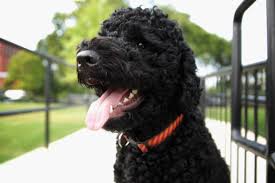Washington, Jan 14: An 18-year-old girl, visiting the White House as a guest of President Barack Obama's family, suffered a cut below her eye after she was bitten by the first family's dog, Sunny, according to a media report.
 The girl, who was not identified, was bitten in the face on Monday when she went to pet the 4-year-old Portuguese Water Dog, TMZ.com reported.
The girl, who was not identified, was bitten in the face on Monday when she went to pet the 4-year-old Portuguese Water Dog, TMZ.com reported.
The bite left a gash under the girl's eye and she was treated by President Obama's family physician Dr Ronny Jackson who said she needed stitches.
Jackson said the bite would leave a small scar, which apparently upset the teen, who posted photos with angry captions after the incident, New York Daily News quoted multiple reports as saying, a week before Obama leaves the White House at the end of his second term as US President.
This is not the first time Sunny made headlines. In 2013, the USD 2,500-dog jumped on a toddler during a holiday party while being held by the first lady, Michelle.
In that instance, the girl was fine, Sunny even reportedly licked her face.
Sunny's 8-year-old canine sibling Bo, christened as the "First Dog," does not have any bite attacks on his record.





Comments
Add new comment